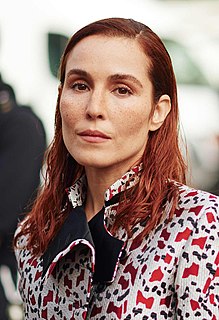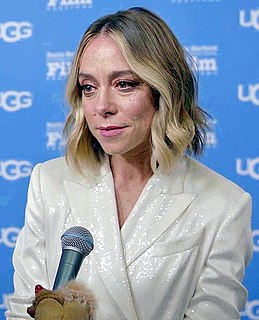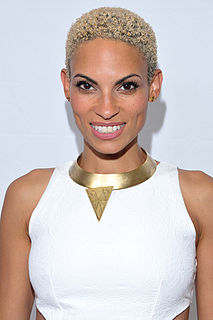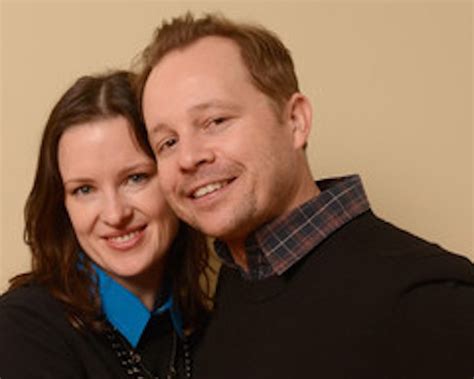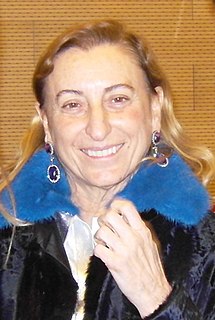A Quote by Justin Simien
I tend to be collaborative, and I want to hear other people's ideas. Especially with actors, I want them to feel like they can breathe life into their characters.
Related Quotes
I don't want to know about the lives of other actors and I don't want people to know too much about me. If we don't know about the private lives of other actors, that leaves us as clean slates when it comes to playing characters. That's the point, they can create these other characters and I can believe them.
I don't want to know about the lives of other actors and I don't want people to know too much about me. If we don't know about the private lives of other actors, that leaves us as clean slates when it comes to playing characters. That's the point, they can create these other characters and I can believe them. I think if you're a good enough actor, that's the way to longevity in the film business. Keep everybody guessing.
There's a perception that if an artist produces another artist, they're going to imprint on them. But I'm the opposite. I want to hear that artist; I don't want to hear me - that's the last thing I want to hear. There are a lot of technical studio things I've learned or figured out, and I feel like I could use those things to help other people with what they're doing.
When I have an exhibition, I usually arrange it so that if people want to, they can spend two hours there. That way, people who like it don't feel cheated when they go. I want them to walk into the exhibition space and look low and at other levels and angles. The same with emotions. I want them to be emotionally manipulated, to come out feeling something. I want them to laugh, smile, feel sad. Even if they feel angry, that's okay.
When you are trying to get a shot, you can't be pleasing everybody. And I tend to be sort of collaborative and a bit of a pleaser. And when I'm directing, people just sort of call me Black Hat Gabriela. Because suddenly they're like, "What happened to you?" Because I stop listening. And I feel strident. I feel rude. And I feel un-collaborative.
I want to get out of the way of the actors. I want to get out of their eye lines. I want to them to stop thinking they're making a movie. I want them to just go and live. It's like you take these great actors and put them in an aquarium of life, and just watch them swim. That's what makes editing tough because you get all these beautiful, unplanned moments.
I've wondered, though, if one of the reasons we fail to acknowledge the brilliance of life is because we don't want the responsibility inherent in the acknowledgment. We don't want to be characters in a story because characters have to move and breathe and face conflict with courage. And if life isn't remarkable, then we don't have to do any of that; we can be unwilling victims instead of grateful participants.
I don't like the strictly objective viewpoint [in which all of the characters' actions are described in the third person, but we never hear what any of them are thinking.] Which is much more of a cinematic technique. Something written in third person objective is what the camera sees. Because unless you're doing a voiceover, which is tremendously clumsy, you can't hear the ideas of characters. For that, we depend on subtle clues that the directors put in and that the actors supply. I can actually write, "'Yes you can trust me,' he lied." [But it's better to get inside the characters' heads.]




